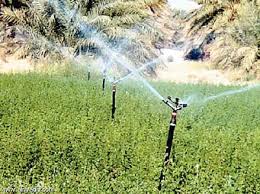
Nature of work
An irrigation engineer designs, makes and understands an irrigation system that will give the most excellent result to an area. He/she also makes researches on problems that are related to soil drainage. He/she applies his/her knowledge to find solutions. He/she teaches the consumers regarding the various types of irrigation system that are available, and this would include sprinklers and drip systems. He/she utilizes programs and computer software to create plans and detailed blueprints of the procedures for installation. He/she will also have to explain the impact of having this irrigation system.the duties will be as following:
- Analyzing survey reports, maps, drawings, blueprints, aerial photography, and other topographical or geologic data to plan projects.
- Estimating quantities and cost of materials, equipment, or labor to determine project feasibility.
- Managing and directing staff members and the construction, operations, or maintenance activities at project site.
- Providing technical advice regarding design, construction, or program modifications and structural repairs to industrial and managerial personnel.
Environment of work
An irrigation engineer works in the office where he/she studies the area of his/her client and makes plans for the irrigation system to be installed. The half of his/her time will be used to go to the field to survey the area that can help in planning the appropriate irrigation system. Usually he/she is assigned to rural areas where most of the agricultural lands are found. Professional life
A irrigation engineer may need to take on considerable responsibilities quickly, such as managing a project, controlling large-cost budgets or supervising a team of new graduates. There is plenty of scope to progress to management positions, particularly if he/she is prepared to study further business-related qualifications. It is also possible to reach higher salary grades through the development of further technical expertise, where management responsibilities may not be required. Movement between private and public sectors is relatively easy once sufficient experience has been gained, particularly after he/she has obtained CEng registration at The Order of Syrian engineers. Relevant vacation work can improve his/her chances, along with a demonstrable interest in irrigation engineering, environmental issues or public health evidenced through academic projects or water-related modules undertaken as part of his/her degree/postgraduate study.Typical starting salaries: 40000 SYP.
Getting the job
Most employers would like to hire aspirants who has a bachelor’s degree in engineering and has enough knowledge of CAD applications. He/she must also have a master’s degree in agriculture. He/she should know something about fluid mechanics that would help him/ her in designing irrigation systems. Skills
There are some skills the irrigation engineer needs to have and improve, such as:- Mathematics, using mathematics to solve problems.
- Critical Thinking, using logic and reasoning to identify the strengths and weaknesses of alternative solutions, conclusions or approaches to problems.
- Complex problem solving, identifying complex problems and reviewing related information to develop and evaluate options and implement solutions.
- Judgment and decision making, considering the relative costs and benefits of potential actions to choose the most appropriate one.
- Operations analysis, analyzing needs and product requirements to create a design.
Sources and references
If you need any further information on what is included in this file, you can visit the following:- ascelibrary.org/journal/jidedh, Journal of Irrigation and Drainage Engineering
- www.irrigationengineers.com
- Arab Standard Classification of Occupations, 2008, Ed. Arab Labor Organization.
